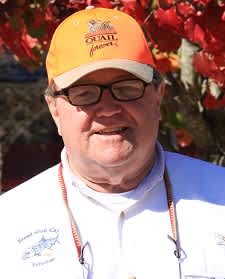Nebraska’s Gottschalk Elected Chairman of Pheasants Forever’s National Board
Pheasants Forever 10.10.13

Gottschalk is past Chairman and CEO of the Omaha World-Herald Company
Pheasants Forever (PF) and Quail Forever (QF) announce John Gottschalk was elected as chairman of the organization’s national board of directors at the group’s recent meeting. A lifelong outdoorsman and conservationist, Gottschalk has served as a PF/QF national board member since 2007 and succeeds Chairman Bob Larson of Wayzata, Minnesota.
“John’s effectiveness and knowledge as a conservation champion is well-known and respected throughout the outdoor community, and we are proud to have him serve as Pheasants Forever and Quail Forever’s board chairman,” said Howard K. Vincent, president and CEO of Pheasants Forever and Quail Forever. “21st century conservation demands 21st century leadership, and John is just the visionary to lead the organization toward new heights as we continue to implement viable conservation measures for protecting our nation’s wildlife heritage.”
“We are at a very significant crossroads as an organization regarding our mission,” said newly-elected Chairman John Gottschalk. “What we do in the next two years will be a leg in a long race to make sure Pheasants Forever is efficient and sustainable.”
A nationally-recognized philanthropist, Gottschalk has served in a director’s capacity for various for-profit and non-profit organizations. Regarding his role with Pheasants Forever and Quail Forever’s National Board of Directors, Gottschalk noted, “The Pheasants Forever board is a priorities arm of Pheasants Forever. I hope we can strengthen its capacity and effectiveness to deal with ever-changing habitat complexities.”
A publishing industry veteran and former director and CEO of the Omaha World-Herald, Gottschalk joined the Omaha World-Herald as a general management executive in 1975, after having launched his publishing career in 1965 at the Sidney (Nebraska) Telegraph. He rose to become only the fifth CEO and publisher in the newspaper’s 122-year history and served eighteen years in that capacity through 2007. Outdoor recreation and conservation received considerable attention throughout his journalism career, with both editorial and financial support a consistent priority.
Pheasants Forever and Quail Forever operate under a unique grassroots model in which chapters and its members are empowered to determine how 100 percent of their locally raised conservation funds are spent, the only national conservation organization with this model. “I am proud of the work of our Pheasants Forever members and urge our chapter leaders to double down efforts to grow membership and add more acres to Pheasants Forever’s 30-year record of habitat conservation,” Gottschalk continued.
Gottschalk currently serves on the corporate board of directors for McCarthy Group, Pacific LifeCorp, Pacific Mutual Holding Co., Cabela’s, and World’s Foremost Bank. Previously, Gottschalk has served on the corporate board of directors for more than 20 organizations. He has been honored by various organizations such as the Woodrow Wilson Foundation and the University of Nebraska Foundation with public service awards and has extensive involvement in regional and national organizations, including serving with the Boy Scouts of America, both on the national executive board (1994-Present) and as the organization’s national president (2008-2010).

